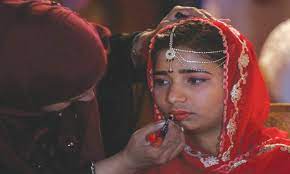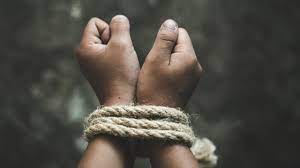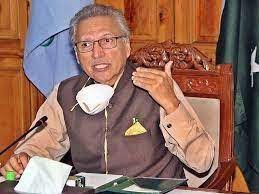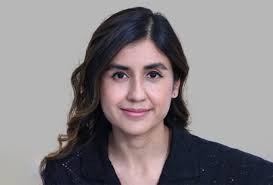Speakers at a consultation session on implementation of the Sindh Child Marriage Restraint Act 2013 held on Thursday stressed the need for effective implementation of the laws pertaining to children and women rights.
They called for creating awareness among the people about the effects of child marriages. Parliamentarians, members of various commissions on rights, government officers, and representatives of police and civil society organisations spoke at the session jointly organised by the Sindh Human Rights Commission (SHRC) and National Commission on the Rights of Child (NCRC) at a local hotel.
Sindh Child Rights Commission Chairperson Shamim Mumtaz chaired the consultation. The speakers included Sindh Assembly members Mangla Sharma, Kulsoom Chandio and Farhat Semeen Soomro, SHRC Chairperson Justice (retd) Majida Razvi, Sindh Commission on Status of Women Chairperson Nuzhat Shirin, National Commission for Human Rights (NCHR) member Anis Haroon, Acting Chairman of National Commission on the Rights of Child Jawadullah Khan, National Commission on the Rights of Child member Iqbal Ahmed Detho, DIG Sharjeel Kharal, Unicef representative Mehwish Maria, Social Welfare Department Secretary Dr Shirin Narejo, child rights consultant Sarah Zaman, rights activist Zulfiqar Shah and others.
The speakers observed that in rural areas, children and women were facing malnutrition. Maternal mortality rate was quite high in the rural areas of Sindh and early age marriages were one of the main reasons for such problems, they remarked.
The experts underscored the need for societal changes and called for increasing the literacy rate especially in the rural areas of the province. It was pointed out that child marriages were being reported in flood relief camps as well. Economics and security were the main reasons for early marriages of girls in poor families, it was said.
In her speech, the Sindh Child Rights Commission chairperson said that every case of the child marriage was not reported in the media. She asked the media to play a vital role in creating awareness among the people.
Mumtaz termed poverty one the main causes of child rights abuses in our society. She added that the vulnerable sections of society should be provided social protection. Justice (retd) Majida said child marriage incidents were increasing in Sindh despite the passage of the law prohibiting them. She opined that the implementation of the law was the main problem.
She stressed the need for uniformity of laws within the country as the marriage age was different in provinces. Sindh was the first province that fixed 18 years as the minimum age for marriage, she said.
Anis said it was a big violation of the rights of a girl if she was married before the age of 18 years. She added that parents thought about the security of their daughters when they married them off in an early age but they did not consider post-marriage impacts on the lives of their daughters.
She lamented that women were considered a commodity in our society and maternal deaths were rampant. She suggested that model district be made in Sindh where all basic facilities were provided and the laws implemented.
In his presentation, Detho said that during the making of laws and their rules, the lawmakers had made some compromises. He added that the local governments were responsible for the registration of marriages and issuance of birth certificates. He urged all the stakeholders to identify gaps in the implementation of the law.
Child rights expert Sara remarked that often child marriage was understood as a marriage of a girl child. “We don’t focus on boys’ marriages,” she pointed out. She maintained that incidents of child marriage, trafficking and rape were rampant in flood relief camps in the province.
The UNICEF representative told the session that after Khyber-Pakhtunkhwa, Sindh had the highest rate of child marriage in the country. Quoting a UNICEF study, she pointed out that there was high prevalence of people’s acceptance of child marriage.
She said that the birth registration in Sindh was only 28 per cent. DIG Kharal said that violation of the anti-child marriage law was a non-bail able and cognizable offense. He admitted that there was a shortage of female police personnel in rural areas.
The SCSW chairperson said the commission had reviewed many laws pertaining to rights of children and women. Nuzhat stated that the Child Protection Authority had been established, but child protection units were not active at the district level. The social welfare secretary said local traditions were the main problem in the implementation of laws. She underlined the need for incentivizing registration of births and marriages.
Source: The News






